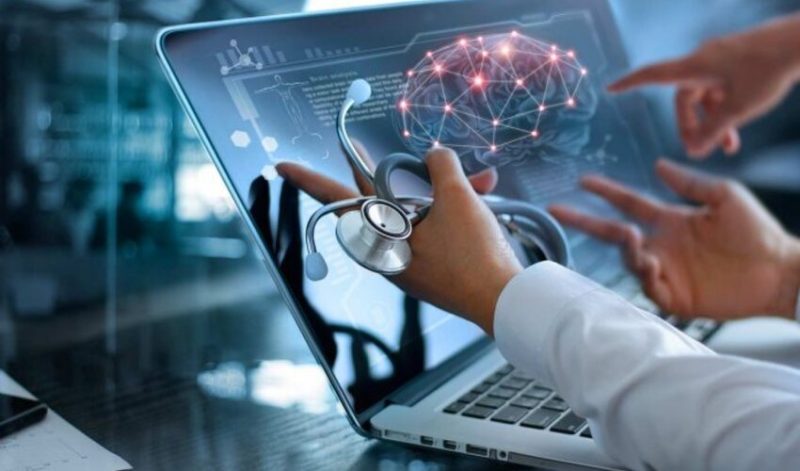
Features of Effective Healthcare Software Solutions
Last updated on January 17th, 2024 at 11:28 am
Technology integration has been a game changer in the fast-changing healthcare industry, transforming how healthcare services are given and administered. The creation of healthcare software solutions is a significant advancement in this industry.
Integrating these solutions has created a new patient care and management era, enabling healthcare professionals and institutions to provide high-quality services. Let’s delve into the essential features that make healthcare software solutions effective and indispensable.
1. Interoperability and Integration
Seamless communication and data sharing between different healthcare systems and facilities are crucial. Effective healthcare software should possess interoperability features, allowing the exchange of patient data across various platforms. Integrating e-services with Electronic Health Records (EHRs) and other systems ensures continuity of care and eliminates the risk of fragmented patient information.
2. Security and Compliance
Privacy and security are non-negotiables in healthcare software systems. Compliance with HIPAA and GDPR is required to safeguard sensitive patient data. Robust encryption, authentication methods, and regular security audits are necessary to limit risks and retain patient trust.
3. User-Friendly Interface
User experience plays a critical role in the adoption and effectiveness of healthcare software solutions. Intuitive interfaces, easy navigation, and user-friendly designs are crucial to ensure seamless interaction for healthcare professionals, minimizing errors and enhancing productivity. Customizable dashboards and features tailored to specific roles streamline workflows and improve efficiency.
4. Clinical Decision Support
Advanced healthcare software solutions incorporate intelligent algorithms and data analytics to support clinical decisions. These systems assist healthcare professionals in making informed decisions by offering real-time insights, alerts for potential issues, and evidence-based recommendations. This feature enhances diagnostic accuracy and treatment planning, ultimately improving patient outcomes.
5. Telemedicine and Remote Monitoring
Telemedicine and remote monitoring capabilities have become critical, especially after the COVID-19 outbreak. Telehealth-capable healthcare software systems provide remote consultations, patient vitals monitoring, and chronic disease management. These features connect healthcare practitioners with patients, ensuring prompt interventions and decreasing unnecessary hospital visits.
6. Scalability and Customization
The dynamic healthcare industry demands scalable and adaptable software solutions to evolving needs. Flexible architectures that allow customization based on specific requirements of healthcare facilities ensure optimal utilization without compromising performance. Scalability enables seamless expansion as healthcare organizations grow or encounter changing demands.
7. Analytics and Reporting
Data analytics tools integrated into healthcare software solutions empower providers to derive meaningful insights from vast amounts of data. Analytics features enable trend analysis, forecasting, and reporting, aiding in identifying areas for improvement, optimizing resource allocation, and enhancing operational efficiency.
8. Mobile Compatibility
In an increasingly mobile-centric world, healthcare software solutions must be accessible across various devices. Mobile compatibility allows healthcare professionals to access patient information, update records, and communicate with colleagues, fostering flexibility and improving responsiveness to patient needs.
9. AI and Machine Learning Capabilities
Integrating AI and Machine Learning capabilities improves the performance of healthcare software systems. These technologies enable predictive analytics, tailored medicine, and the automation of repetitive operations, which will enhance clinical results, reduce errors, and increase overall efficiency.
10. Support and Training
Adequate user assistance and training are required to adopt healthcare software solutions effectively. Comprehensive training programs and continuing technical support guarantee that healthcare personnel are proficient in utilizing the software to its maximum capacity, maximizing its benefits for patient care and operational operations.
Conclusion
In conclusion, integrating robust healthcare software solutions into the healthcare industry has brought about transformative changes, improving patient care, operational efficiency, and decision-making processes. The effectiveness of these solutions lies in their ability to integrate seamlessly, prioritize security, offer user-friendly experiences, provide decision support, and adapt to the dynamic nature of healthcare. As technology improves, the growth of healthcare software solutions will surely play a critical part in influencing the future of healthcare delivery and services.
Author Bio:
An accomplished content writer specializing in the intricate world of software development. With a keen understanding of technology and a passion for storytelling, Juan crafts engaging, informative content that demystifies complex coding concepts and showcases our software development company‘s innovative healthcare software solutions. Their expertise in the field and a knack for clear and compelling communication bring our cutting-edge projects to life through words.

Aimee Garcia is a senior editor at ReadDive. She has 5+ years of experience in Digital Marketing. She has worked with different IT companies.
